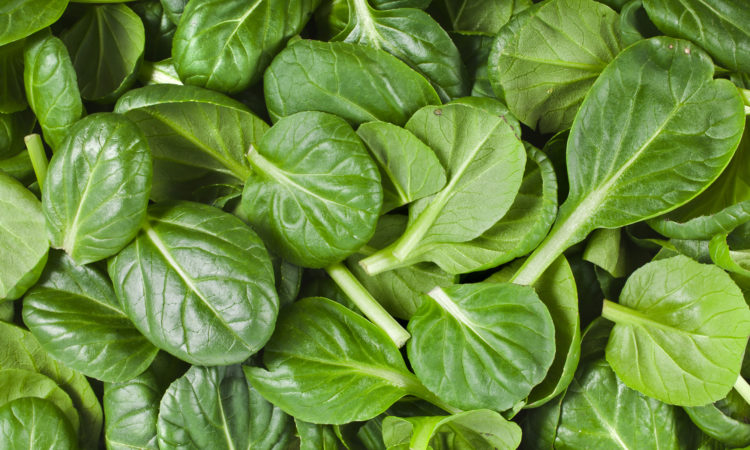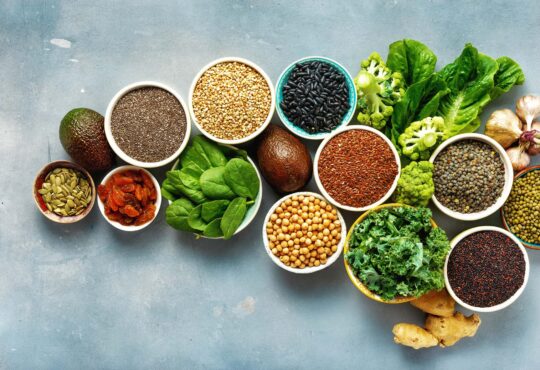
He’s one of the 50 greatest cartoon characters of all time.
So I hope you know he’s strong to the finish “because I eats me spinach.”
Fortunately, the benefits of eating spinach are not confined to cartoon characters.
We don’t eat enough, even though the United States is the #2 producer of this terrific vegetable in the world.
Packed With Uncommon Nutrition
Spinach is one of the richest veggies on Earth.
In just 3 1/2 ounces of it, you get:
* 99 mg of calcium – dark leafy greens is the best source
* 2.7 mg of iron – and that’s non heme-iron because it’s from a plant, not blood
* 79 mg of magnesium – most Americans are chronically short of this important mineral, which we need in balance with calcium
* 558 mg of potassium – most Americans are at risk of high blood pressure because we take in way too much sodium and way too little potassium, which should be in balance with sodium
* 480 ug of Vitamin K – a little-known vitamin essential for healthy blood coagulation and bone density
* 12200 ug of lutein and zeaxanthin – these are carotenoid phytochemicals that aren’t common (unlike their cousin, beta carotene, which spinach is also rich in). They are strong antioxidants that protect your eyes from free radical damage and stress.
* 102 mg of betaine – healthy on many fronts, but especially good for your heart because it reduces homocysteine
Stronger Bones in Younger and Older Women
Despite consuming more calcium from dairy products, women in the developed world actually have higher rates of bone fractures than women in developing countries – who obtain their calcium primarily from green leafy vegetables. Such as spinach.
Scientific studies have found that increased intake of vegetables is associated with lower risk of fractures from falling.
Studies have also shown eating vegetables increases bone density in younger women as well as older women.
Fighting the Leading Cause of Blindness in America
That’s age-related macular degeneration.
Yet studies have demonstrated that people taking 2 1/2 ounces of spinach for two months increased the pigment in their eyes. And the amount of lutein in their eyes went up as well.
This is important because lutein reduces risk of age-related macular degeneration and slows the onset of cataracts.
Lutein also helps protect your brain. Studies show it reduces the risk of cognitive decline, dementia and Alzheimer’s – as well as coronary heart disease.
Keep Your Brain 11 Years Younger Than You Really Are
Science has demonstrated eating more vegetables improves your brain’s health and functioning.
Besides the lutein in spinach, it also contains such other brain-boosters as folate, beta carotene, Vitamin K and nitrates.
In one study, 960 people were followed for five years. They were aged 58-99 years old.
They were all given cognitive tests at the beginning of the study – and at the end.
The researchers found the highest vegetable-consuming group – eating just one serving of green leafy vegetables per day – had brains 11 years younger than their calendar years.
Boost Your Immune System’s Health
One study gave 9 women spinach every day for three weeks.
The researchers found this improved the ability of their immune system’s white blood cells to fight off damage from free radicals.
That’s important because your white blood cells must attack and kill disease-causing infections. Free radicals weaken your white blood cells so they can’t fight off diseases.
And spinach preserves your white blood cells.
Spinach’s Appetite-Suppressant, Satiety Component
Spinach also contains a class of phytonutrients that may actually help you lose weight – though that hasn’t been “proven.”
Studies show they do tend to reduce people’s appetites – which is, of course, a good thing when you want to lose weight.
These phytonutrients are thylakoids, and spinach is rich with them.
They also reduce your insulin, which is important for anyone at risk for diabetes.
The same study found thylakoids reduce ghrelin – a hormone which increases hunger . . . and increases leptin, a hormone which suppresses your appetite.
Fresh, Frozen, or Canned?
You can buy spinach in all three forms.
Popeye preferred his spinach canned, and that makes sense.
Both frozen and canned spinach preserve the nutritious ingredients.
On the other hand, fresh spinach loses nutrition as it ages, so it’s best if you eat it quickly.
Canned spinach costs less than fresh spinach.
That said, I really like a thick bed of fresh spinach holding the other ingredients of my Subway sub sandwiches.
So, the best way to eat spinach is the way that encourages you to eat the most of it.
Caution:
Spinach is also high in oxalates, which medicine blames for kidney stones.
Therefore, if you’re at risk of kidney stones, check with your doctor.
Otherwise, eat your spinach so you can fight to the finish.
https://en.wikipedia.org/wiki/Popeye
https://www.youtube.com/watch?v=i8O0PwGSoO0
https://supplementclarity.com/spinach-thylakoid-health-benefits/
https://www.healthline.com/health/foods-high-in-vitamin-k#3.-Spinach
https://enzymedica.com/blogs/ingredient-science/unlocking-health-benefits-with-betaine
https://www.memoryhealth.com/blogs/the-brain-blog/myth-buster-lutein-only-benefits-your-eyes
https://www.webmd.com/diet/features/your-hunger-hormones
https://healthland.time.com/2012/04/23/fresh-vs-canned-can-you-get-healthy-food-from-a-can/slide/spinach/







